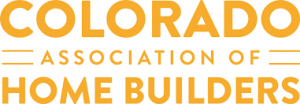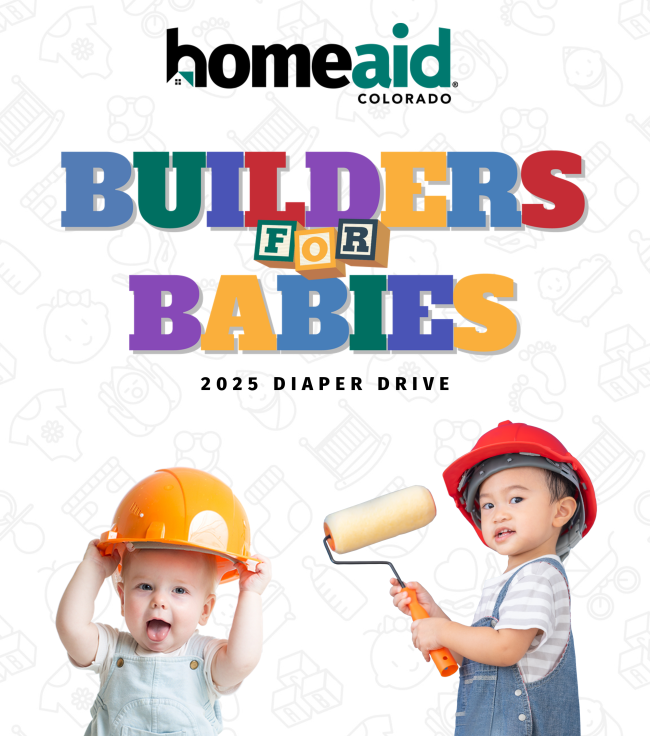Capitol Close Up: June 10, 2025

2025 Energy Code Board Finalizes
Model Low Energy and Carbon Code
The Energy Code Board held its final regular meeting on May 30, completing the final draft of the Model Low Energy and Carbon Code. The board considered 89 proposals to alter the code and far too many of them passed. The final code is available by clicking here. The Sum & Substance’s coverage of the final meetings is available by clicking here. We welcome your feedback on these codes, particularly if you have data to demonstrate the increased cost of building because of the codes. Based on relevant code analysis performed by Home Innovations Research Labs, we believe the increases will be between $25,000 and $35,000, depending on the size and location of the home. Bigger homes will absorb a larger share of the increased amounts.
As one builder, who spent many hours analyzing the draft code and offering suggested changes trying to get the code to take into account affordability, put it: “The public needs to understand that this energy code does not fulfill the mandate for carbon emission reductions today. It is the embodiment of step one toward an ideology without compromise, which presumes ‘someday’ an electric grid with increased capacity and 100 percent renewable energy. If California can’t get there, which benefits from a mild climate, how can Colorado reasonably justify a similar approach?”
We would like to thank the combined member and staff team at the Housing and Building Association of Colorado Springs for their hard work and support throughout the code-development process. Thanks also to the Northern Colorado HBA, and the GAC’s Caleb Sulzen, for weighing in on code elements and encouraging builders to provide their comments to the Energy Code Board. We’d also like to thank every member who took the time to provide their feedback to the board at any stage throughout the process. Lastly, our special thanks to Andrew Harris, Richmond American Homes, for his steadfast work as a member of the code board. While being outmanned and outgunned, Andrew was diligent in sharing his expertise as the only member of the board who represented an entity that actually builds housing at scale.
While the final code does not resemble a code we agree with and know will unnecessarily add to the cost of already expensive housing, it’s important not to lose sight of our successful advocacy on this matter. In 2022, the Colorado Energy Office (CEO) proposed a bill that authorized the office, and no one else, to write the state’s energy code. Through our advocacy, and partners like CML, we forced the CEO to pump the brakes and develop a process that included many other stakeholders from around the state. If not for our advocacy, we would be working under what could be an even more stringent and costly code.
WUI Board Preparing Rules for
Finalized Wildfire Resiliency Code
The Wildfire Resiliency Code Board has also finalized its code. Information on the Board and the code can be found on the Board website. The code will be adopted on July 1, following formal rulemaking procedures. Links to the final version of the code, draft rules and the state map for the code application can be found below.
- 2025 Colorado Wildfire Resiliency Code
- 2025 Colorado Wildfire Resiliency Code State Map
- Draft Rules 8 CCR 1507-39 concerning the adoption of the 2025 Colorado Wildfire Resiliency Code.
Feedback on the rules can be submitted to cdps_dfpc_wrcb@state.co.us no later than close of business, Wednesday 18 June 2025. We encourage you to review the rules and provide feedback should you have any to share. CAHB will be reviewing the rules and considering providing further feedback.
The Wildfire Resiliency Code Board will hold a public hearing and stakeholder feedback session on Friday, June 27, to seek feedback on the rules concerning the adoption of the 2025 Colorado Wildfire Resiliency Code. This session will be followed by a standard meeting of the Board to determine any changes to the rules. The public hearing and Board meeting are open to the public and will be held in a hybrid format.
Physical location is being finalized and will be announced soon.
Time: 9:00am - 10:00am (hearing); 10:00am - 3:00pm (Board meeting)
Zoom Information:
- https://zoom.us/j/92250154062?pwd=eE5TNmRvYUpoSkF0UC90M29YZy9qUT09
- Meeting ID: 922 5015 4062
- Passcode: xk3p51
A formal public hearing, in accordance with state rulemaking processes, will be held on Tuesday, July 1, and will be followed by the signing of the rules and adoption of the code. The final public hearing will be held virtually:
Zoom Meeting Link:
- https://zoom.us/j/94206650950?pwd=yZBZnKaj26o3uao3C27NgOhe3LVkJS.1
- Meeting ID: 942 0665 0950
- Passcode: KY2BZK
CDPHE to Hold Rulemaking on HB23-1161
Window and Door Efficiency Law
CAHB has been working in partnership with the Governor’s Office, the Colorado Department of Public Health and Environment, and the Colorado Energy Office to address the unintended consequences of HB23-1161, which created a situation where builders could not access windows and doors to comply with the rigid standards set forth in the bill, particularly at altitude.
Specifically, the statute requires residential windows sold after January 1, 2026, to meet Northern Energy Star 7 standards. These standards far exceed what is currently used in residential homes. Approximately 80 percent of current products do not meet Energy Star 7 requirements. Colorado’s elevation introduces challenges to energy performance at any level for a window manufacturer offering products in the market. Windows that incorporate argon gas to maximize efficiency cannot be transported to an altitude higher than 4,000 feet from where the windows were manufactured.
The statute provided CDPHE the ability to modify the standards. The hearing for HB23-1161 rules has been scheduled for June 20. Information on the hearing, including the agenda and rulemaking packet, can be found on the Executive Director or Chief Medical Officer Rulemaking Hearings website.
Additional guidance about the standards can be found on the Efficiency standards for appliances and Guidance for Environmental Standards for Appliances and Building Performance Standards webpages.
We are asking for builders and suppliers to submit comments in support of the proposed rules. CAHB will also submit comments, and we will share the comments once they are finalized. Written testimony must be received by 5 p.m., Sunday, June 15. Persons wishing to submit written comments should submit them by e-mail to cdphe.bohrequests@state.co.us or by mail to: or by mail to:
ATTN: Board of Health Program Assistant
Colorado Department of Public Health and Environment
4300 Cherry Creek Drive South EDO-A5
Denver, Colorado 80246-1530
Public oral comments will also be taken at the June 20 hearing, but requests to make verbal comments must be submitted in advance.
Dredge and Fill Stakeholder Meeting Set for June 18
The next stakeholder meeting held by the Water Quality Control Division on the Regulation 87 development (a.k.a. Dredge and Fill) will be on Wednesday, June 18, from 9:30 to 11:30 am. At this meeting, the division will present and invite discussion on an updated version of the draft regulation, including Sections 87.6 (Individual Authorizations), 87.7 (General Authorizations), 87.10 (Version 2) (Compensatory Mitigation), and 87.12 (Fees).
Registration to attend is available by clicking here. The draft regulation is available by clicking here.
CAHB has members (thanks Scott Smith) participating in the meetings and steering committee meetings.
Scott notes the division will achieve the best results if they have an attitude of a partner in the management of the regulation as opposed to an enforcer. They also need to make sure they are communicating with clarity and promptness. Scott noted that they are approaching this as though all streams are the same, which in fact, they are not. We encourage members to participate in the meetings and provide comments.
CAHB Releases HB25-1272: What You Need to Know
With the 2025 legislative session over, review and consideration is being done to House Bill 25-1272, this year’s version of construction-litigation reform sponsored by Reps. Shannon Bird (D-Westminster) and Andy Boesenecker (D-Ft. Collins), and Senate President James Coleman (D-Denver) and Sen. Dylan Roberts (D-Frisco).
The CAHB has developed a document—HB25-1272: What You Need to Know—for members to review concerns with the legislation. The document is available by clicking here.
While HB-1272 took a positive step forward by raising the voting threshold required for an HOA to proceed with a construction-defects lawsuit, we still have concerns about the Multifamily Construction Incentive Program (MCIP) program that seeks to limit risk of a lawsuit for builders. The CAHB believes it’s important for builders to consult with legal counsel, insurers and trade partners before opting into the program. Once committed, the program may increase exposure while limiting strategic flexibility and offering no new, substantive protections.
The document also details several unintended consequences within the bill that may impact homebuilding. We recommend downloading and sharing the HB25-1272: What You Need to Know document by clicking here and sharing it within your organization.
Veto Updates
Friday was the last day Governor Polis has to act on bills that are still on his desk. CAHB lent its name to several veto requests, including a request to veto HB25-1300, Workers’ Compensation Provider Choice. The governor signed that bill this week, despite the objections of more than 80 organizations.
SB25-005, the collective bargaining bill that was opposed by CAHB, was vetoed by the governor. CAHB signed onto an op-ed in the Denver Gazette applauding the governor for his leadership in vetoing the bill.
The Colorado Real Estate Alliance submitted veto requests for SB25-20 (Tenant and Landlord Law Enforcement) and HB25-1004 (No Pricing Coordination Between Landlords). HB25-1004 was vetoed by the governor, but Polis did sign SB25-20 into law.
Mark Your Calendars: CAHB Summer Meetings Set for July 17 and 18 in Palisade
The CAHB will hold its upcoming quarterly meetings at the Wine Country Inn, 777 Grande River Drive, Palisade. The meetings begin Thursday night, July 17, with a member reception at Colterris Winery, 3907 N. River Rd., Palisade and then the Board of Directors, GAC, and Political Action Committee meetings on Friday, July 18 at the Wine Country Inn. Email Corinne Burch for more information about the meetings and hotel accommodations at corinne@hbacolorado.com.
|
Follow the CAHB on social media:
Please follow the CAHB on Facebook and X (Twitter). The CAHB website has been updated to be more user-friendly and contains valuable information on all of the CAHB member benefit programs. If you have not already, please visit the website and be sure to check out all five of our member benefit programs. All are outlined at https://www.hbacolorado.com/membership.

